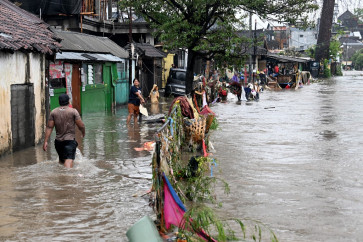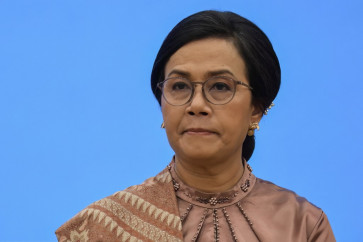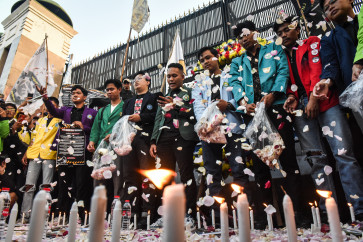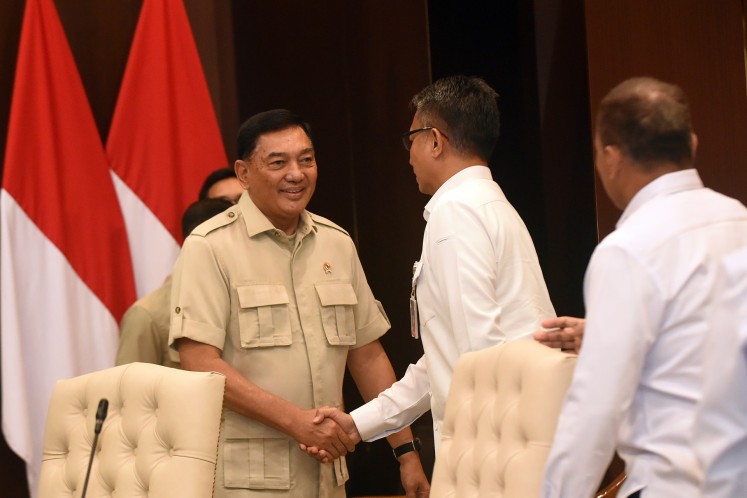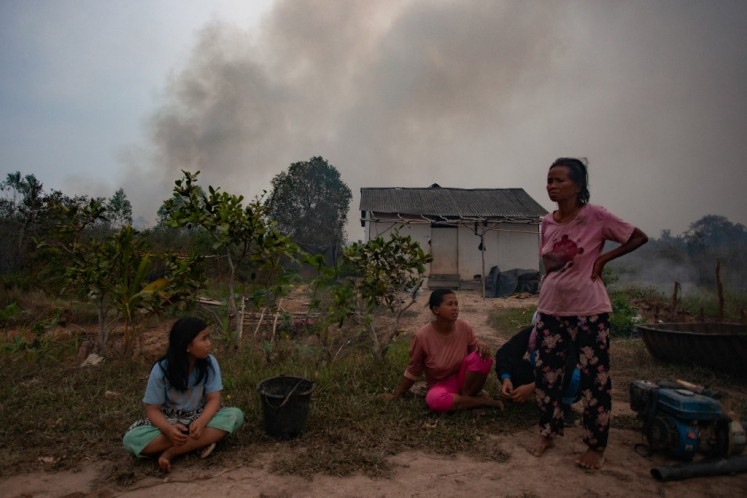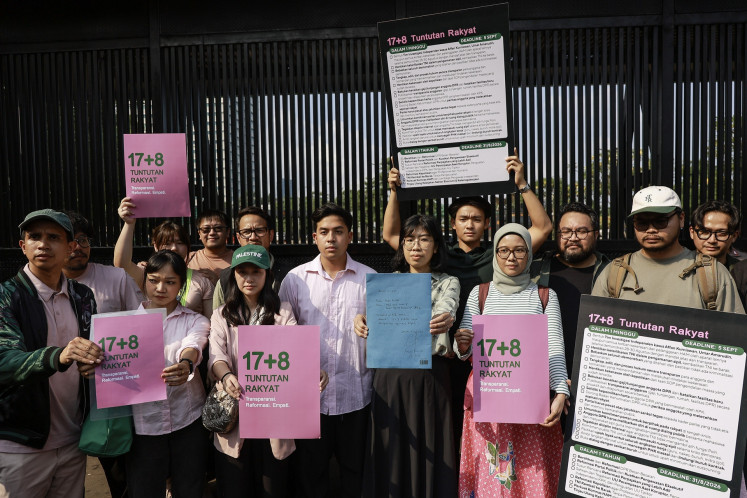Popular Reads
Top Results
Can't find what you're looking for?
View all search resultsPopular Reads
Top Results
Can't find what you're looking for?
View all search resultsGovt says it has ‘lost face’, demands ExxonMobil replace ‘uncooperative’ boss
The government is ordering ExxonMobil Indonesia to replace the firm’s president, Richard J
Change text size
Gift Premium Articles
to Anyone
T
he government is ordering ExxonMobil Indonesia to replace the firm’s president, Richard J. Owen, citing dissatisfaction with the oil and gas contractor’s performance under the American’s leadership.
Interim upstream oil and gas regulatory task force SKMigas spokesman Hadi Prasetyo said that the government would not approve extending Owen’s one-year appointment, which ends in February, after deeming him “uncooperative”.
Owen took over the position from Terry McPhail, who stepped down to retire on Jan. 30, 2012. Owen was not available to comment on Wednesday.
“ExxonMobil requested that the government extend [Owen’s] appointment in late 2012, but the government is not satisfied with his performance and thus requests that ExxonMobil replace him,” hadi told The Jakarta Post on Wednesday.
SKMigas has the right to conduct “fit-and-proper” tests of candidate executives for the country’s oil and gas contractors.
ExxonMobil’s decision to cancel its plan to sell shares in three companies associated with gas and liquefied natural gas (LNG) producing operations in Aceh was said to be the reason behind the government’s decision to replace Owen.
In 2011, ExxonMobil announced its decision to put on the market its companies operating in Aceh: Mobil Exploration Indonesia, ExxonMobil Oil Indonesia and Mobil Indonesia LNG. Local firms, such as Indonesia’s publicly listed Medco, have expressed interest in purchasing the stakes.
However, in 2012, the firm called off its plan to sell the assets, which included the Arun field and the North Sumatra offshore field, much to the government’s chagrin.
“The government has lost face thanks to this incident,” Hadi said.
In addition, the ExxonMobil-operated Cepu block project in East Java currently produces only 22,000 barrels of crude oil per day (bpd), below its expected average daily output of 27,000 bpd as stipulated in the 2012 revised state budget, according to SKMigas.
The government has estimated that the Cepu block would generate 165,000 bpd of oil in 2014, which might drive the national average daily production to more than 1 million bpd.
Oil output in Indonesia, which withdrew from the Organization of Petroleum Exporting Countries (OPEC) in 2008, has decreased from 1.3 million bpd in early 2000s to around 860,000 bpd in 2012
Hadi said the government was optimistic that its issues with Owen would not affect the firm’s plan for the Cepu block.
Separately, ExxonMobil Indonesia’s vice president for public and government affairs, Erwin Maryoto, said that he was surprised by government’s stance toward Owen, citing that the firm “has always engaged in dialogues with the government in relation to the matter”.
“We will inform you further after all the dialogues are concluded,” he said, declining to elaborate further.
He refuted accusations that ExxonMobil had been “uncooperative” under Owen’s tenure, saying that the firm had always prioritized Indonesia’s interests in doing business here.
ExxonMobil canceled plans to sell its shares in Aceh after discussions with relevant stakeholders, deciding that the assets would perform better under the firm’s management, according to Erwin.
“As for the Cepu block’s output, we have successfully managed to reach 24,000 bpd of oil, or above the initial production capacity of 20,000 bpd,” he said.
The firm, he said, expected the incident would not hamper its investment in Indonesia.
The government has been vigorously attempting to convince the public that its management of the oil and gas sector was not excessively pro-foreign following the disbandment of BPMigas (now replaced by SKMigas) on Nov. 13, 2012, by the Constitutional Court.
The court upheld a judicial review filed by groups including Muhammadiyah, the nation’s second-largest Muslim social association, who deemed the BPMigas pro-foreign.


